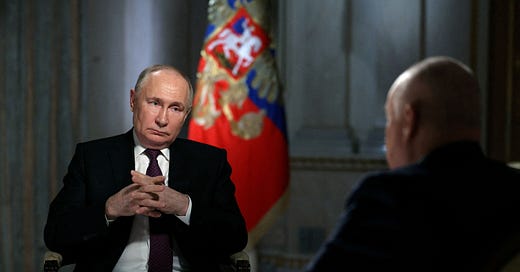Russia-Ukraine: Cease Fire
Putin wants Ukraine ceasefire on frontlines, Defining Success in Ukraine, Foreign Minister Sergey Lavrov’s remarks.
Putin wants Ukraine ceasefire on frontlines
By Guy Faulconbridge and Andrew Osborn (Reuters)
Russian President Vladimir Putin is ready to halt the war in Ukraine with a negotiated ceasefire that recognises the current battlefield lines, four Russian sources told Reuters, saying he is prepared to fight on if Kyiv and the West do not respond.
Three of the so…






